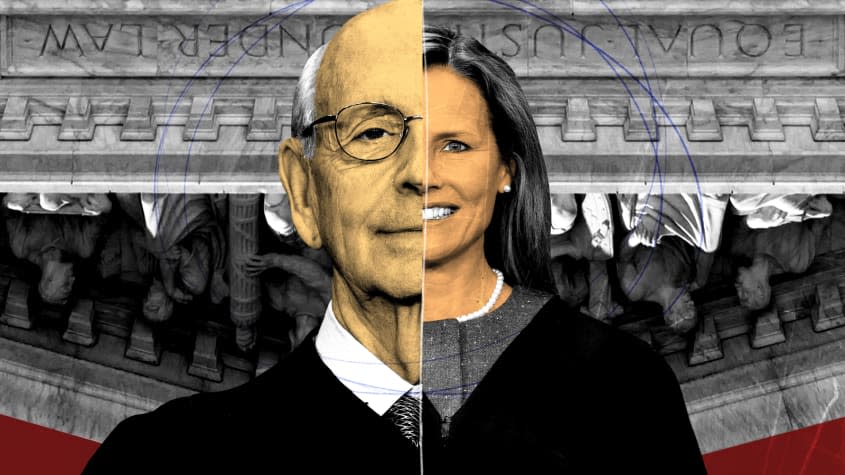The Supreme Court is delusional

- Oops!Something went wrong.Please try again later.
- Oops!Something went wrong.Please try again later.
Over the weekend, two Supreme Court justices — one from the right, one from the left — made the case that their institution is and should remain a place largely free from politics. In both cases, the comments were hard to swallow.
The court's justices are not a "bunch of partisan hacks," Justice Amy Coney Barrett said Sunday at the University of Louisville. "To say the court's reasoning is flawed is different from saying the court is acting in a partisan manner," she told the audience, insisting that differing judicial philosophies are not the same thing as partisan stances. "I think we need to evaluate what the court is doing on its own terms."
Meanwhile, liberal Justice Stephen Breyer gave a weekend interview to Fox News, in which he cautioned against progressive proposals to pack the court. "On the surface, it seems to me you start changing all these things around and people will lose trust in the court," he told the network.
There are reasons to be skeptical. Barrett, for example, gave her speech at Louisville's McConnell Center — named for Senate Minority Leader Mitch McConnell (R-Ky.), who rushed to secure her confirmation during election season after the death of Ruth Bader Ginsburg last fall. McConnell even introduced Barrett's speech Sunday. In that context, Barrett's speech was the political equivalent of a Super Bowl championship parade for the minority leader. It certainly didn't appear to be above the political fray.
Breyer's comments, meanwhile, elided the degree to which many Americans have already lost trust in the court — in part because of the perception that Republicans started "changing all these things around" on the court by denying Democratic nominee Merrick Garland a confirmation hearing in 2016.
By virtue of their lifetime appointments, the court's justices are insulated from the daily battle of politics. But they work in an inescapably political context, chosen for the court not because of their airy musings about "judicial philosophies" but because presidents reasonably believe those philosophies align with their own partisan priorities. Sometimes, the justices' work is even plainly partisan: Who can forget Bush v. Gore, or the court's more recent voting rights decisions? The court isn't above politics — instead, it practices politics with an eye on the long game.
Sometimes you have to wonder if Supreme Court justices believe what they're selling America, or if they're just self-deluded.

